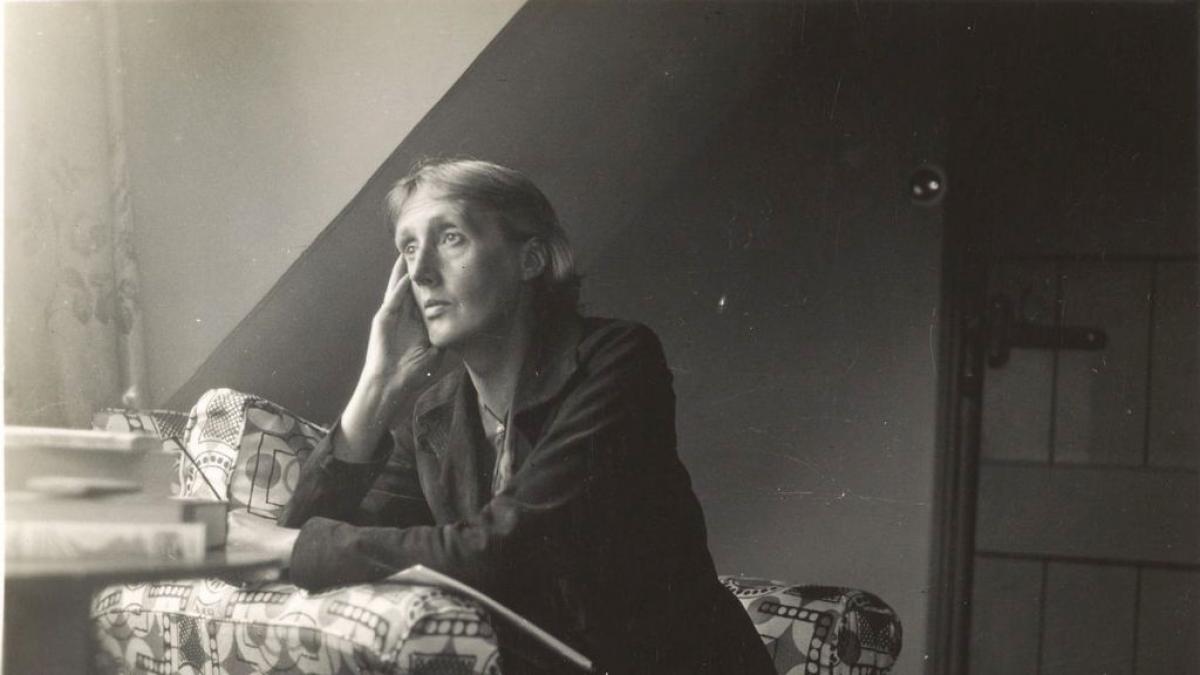A ROOM OF ONE'S OWN. Virginia Woolf
The rooms differ so completely; they are calm or thunderous; open on to the sea, or, on the contrary, give on to a prison yard; are hung with washing; or alive with opals and silks; are hard as horsehair or soft as feathers – one has only to go into any room in any street for the whole of that extremely complex force of femininity to fly in one's face. (p. 118)
Considered to be the foundational work on women's literature, A Room of One's Own is based on two lectures the author gave in 1928 at Newnham College and Girton College, university schools for women at the University of Cambridge. Between dialogue and personal meditation, Woolf develops the theme "women and the novel" focusing on the fact that, in order for women to become writers, it is essential to have "a room of their own with a lock and key and five hundred pounds of annual income."
Within the framework of the University, the validity of this universal classic must be emphasized in a feminist and class context. The Catalan translation is by Helena Valentí (1940-1990), also a novelist and translator, and the foreword is by Maria Antònia Oliver-Rotger, professor of English Literature at the UPF Humanities Department.
Virginia Woolf (London, 1882–Sussex, 1941) is one of the key figures of Anglo-Saxon modernism and a pioneer of feminism. She founded, together with her husband Leonard Woolf, the renowned publishing house Hogarth Press, which consecrated authors such as T.S. Eliot and Katherine Mansfield. He also brought together several early 20th century authors within the Bloomsbury Group. Of his work, the novels To the Lighthouse, The Waves, Orlando, The Years or Between the Acts stand out, as well as epistolary or essay collections.

«A Room of One's Own is more of an exposition of the process of observing, pondering, asking questions and finding answers than a dissertation on objective facts. The tone of the narrator/protagonist is that of a dialogue – with us and with herself – in which the fluidity of consciousness alternates between autobiographical episodes, questions, meditative excursions, moments of revelation or epiphanies, and speculations in the form of fiction, research and literary criticism." (Foreword, "In the shadow of the letter "J"», p. 14)
«Physical space and metaphor for mental space, this room goes hand in hand with money as, in her opinion, the exercise of the mind and physical and material well-being also go together. It is significant that Woolf uses the neutral generic pronoun "one", which alludes to and interpellates any person regardless of their gender. The use of "one" is not accidental because [...] the writer pursued the ideal of an androgynous mind and soul that had erased gender marks. The title, therefore, points to a humanist, feminist and revolutionary aspiration in the society of its time and, despite the clear advances that we know and feel, I dare say that also in ours: the right of any person to to develop their creativity and knowledge from a space of material well-being free from gender conditioning." (Foreword, "In the shadow of the letter "J"», p. 12)
MARIA ANTÒNIA OLIVER-ROTGER
Professor in the Humanities Department of the UPF
A Room of One's Own "is not only about the status of women, but also about creative intelligence, about the nature of genius and the fatality of fascism. The book is energetic, lucid, compelling, funny; it is, in fact, a masterpiece."
JOHN LEHMAN
English poet and editor
If you want to discover more curiosities about this re-edition, promoted by the UPF-BSM and the UPF, consult the article.
